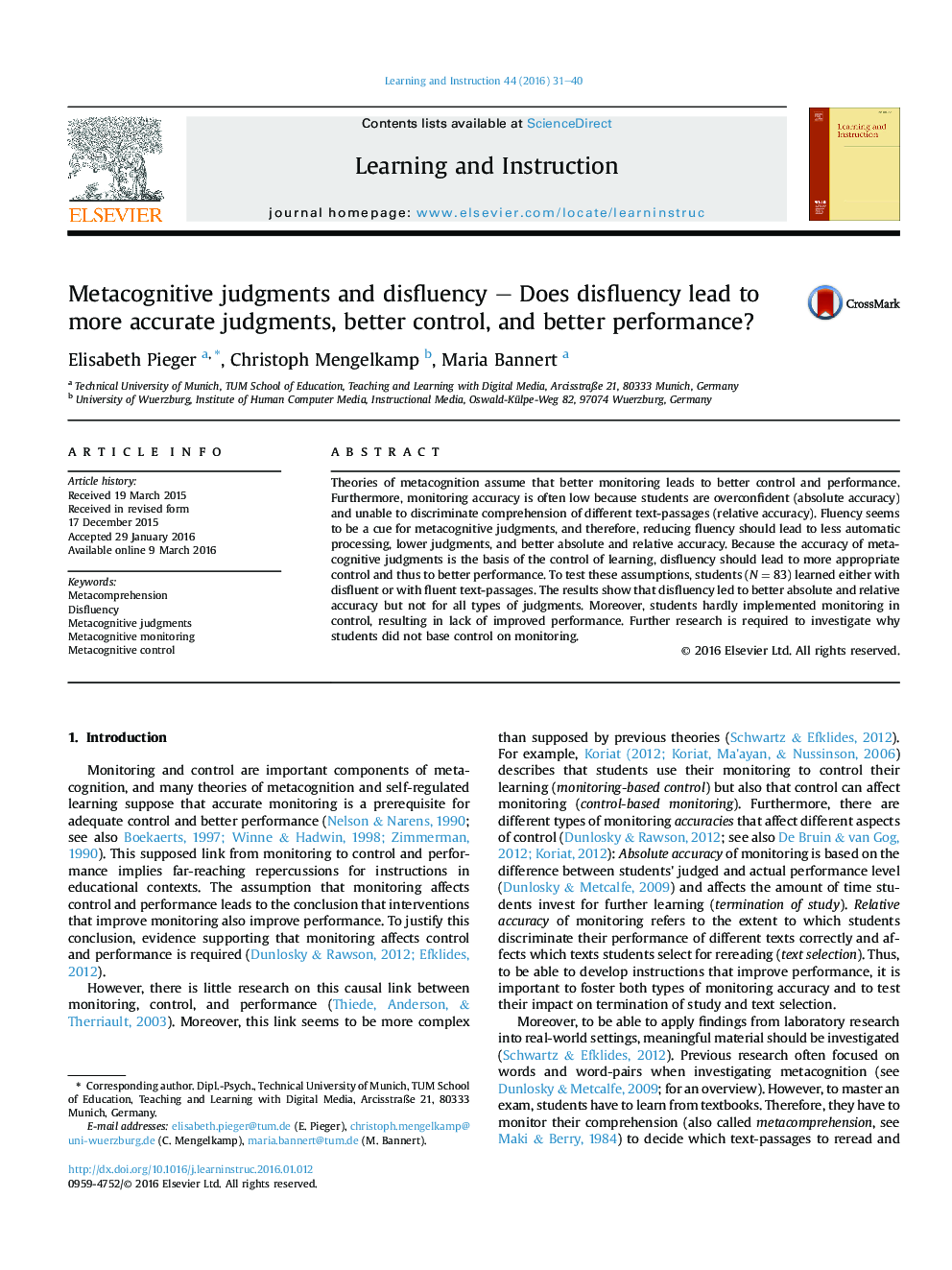| کد مقاله | کد نشریه | سال انتشار | مقاله انگلیسی | نسخه تمام متن |
|---|---|---|---|---|
| 365470 | 621192 | 2016 | 10 صفحه PDF | دانلود رایگان |
• Disfluency is used as a cue for different metacognitive judgments.
• Monitoring accuracy depended on the stage of the learning process.
• Contrary to metacognition theories, students did not base much control on monitoring.
• Learning with disfluent texts did not improve performance.
Theories of metacognition assume that better monitoring leads to better control and performance. Furthermore, monitoring accuracy is often low because students are overconfident (absolute accuracy) and unable to discriminate comprehension of different text-passages (relative accuracy). Fluency seems to be a cue for metacognitive judgments, and therefore, reducing fluency should lead to less automatic processing, lower judgments, and better absolute and relative accuracy. Because the accuracy of metacognitive judgments is the basis of the control of learning, disfluency should lead to more appropriate control and thus to better performance. To test these assumptions, students (N = 83) learned either with disfluent or with fluent text-passages. The results show that disfluency led to better absolute and relative accuracy but not for all types of judgments. Moreover, students hardly implemented monitoring in control, resulting in lack of improved performance. Further research is required to investigate why students did not base control on monitoring.
Journal: Learning and Instruction - Volume 44, August 2016, Pages 31–40
